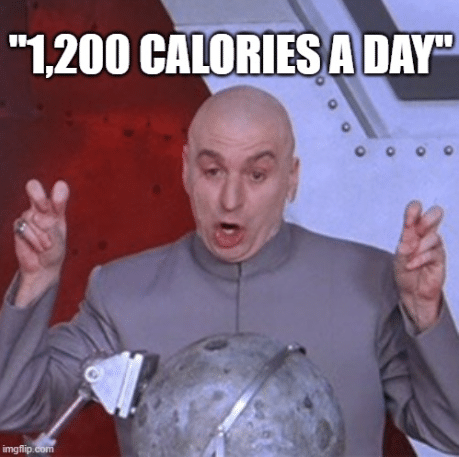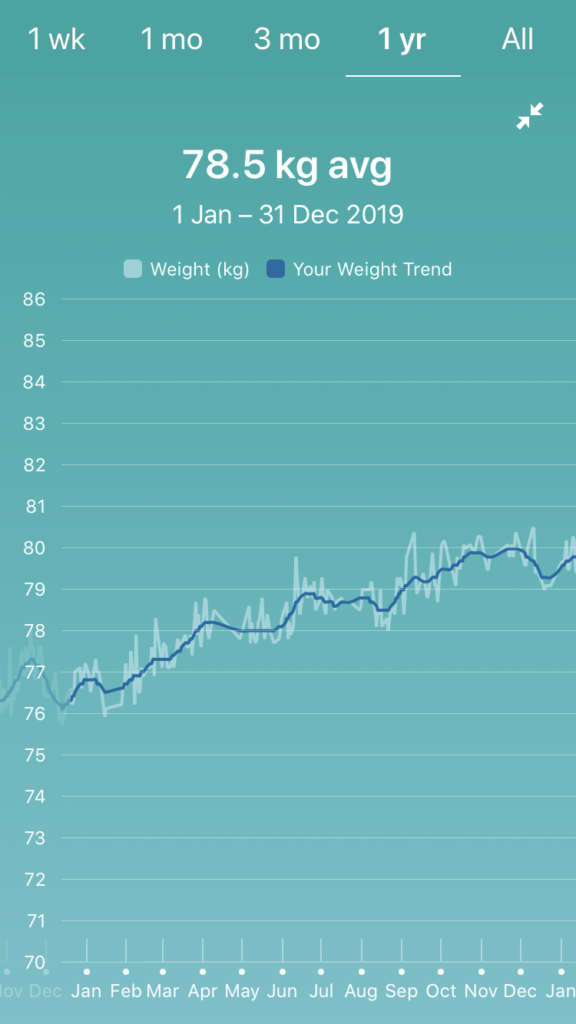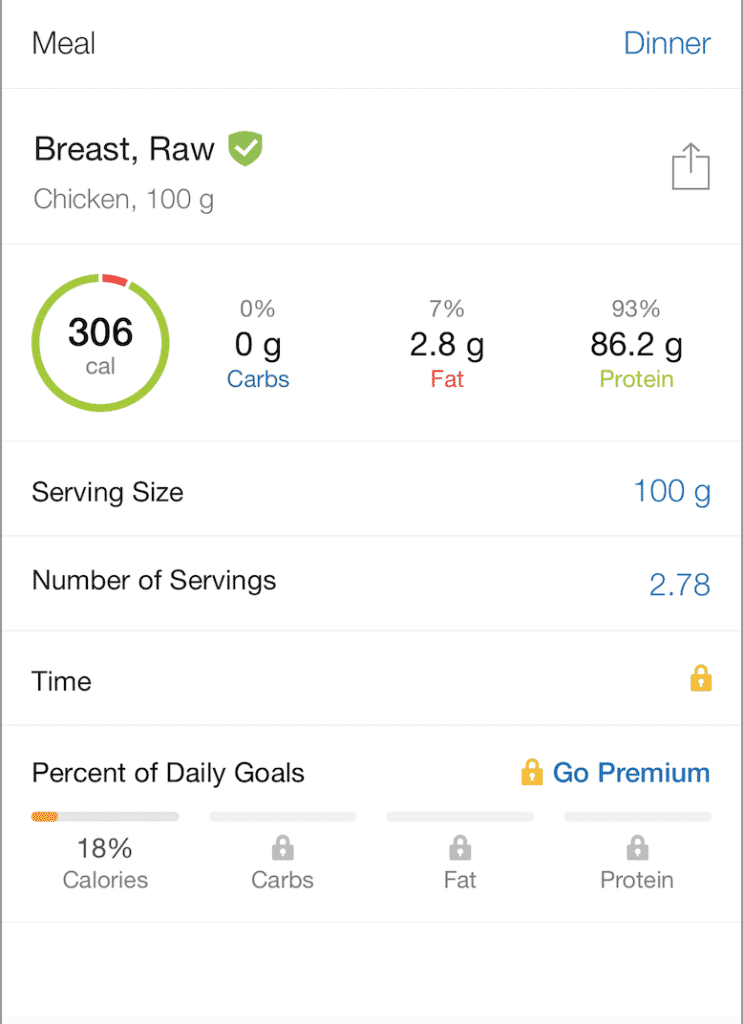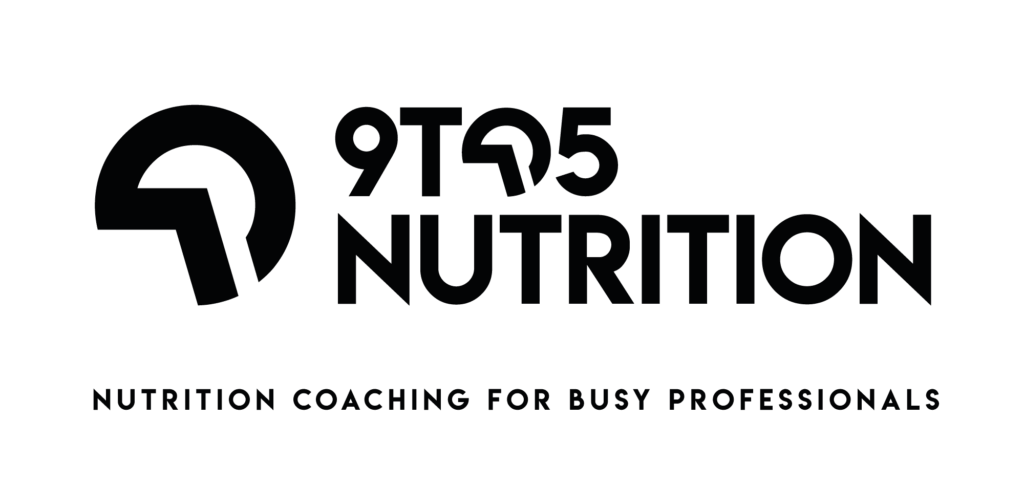- How Much Weight Can You Realistically Lose in 3 Months? - January 14, 2024
- How To Lose 1kg a Week (Guaranteed) - August 20, 2023
- How To Count Calories (or Estimate) and Stay on Track When Eating Out at Restaurants - July 25, 2023
1200 calories.
That ‘magic’ number that everyone seems to quote.
“Eat 1200 and you’ll lose weight” said Karen from your office who’s been the size of a dumpster for the past 5 years.
It’s all well and good to poke fun at this mythical ‘perfect; calorie deficit, but the truth is, if most people ate 1,200 calories a day (every day) they’d lose weight, and they’d do so quickly.
But this doesn’t mean you should.
1,200 calories is not ideal for everyone.
For example, if you’re a big dude with lots of muscle that lifts weights or plays sports multiple times per week, 1,200 calories is going to be WAY too low for you to maintain.
Your life will be miserable, you’ll hate everything, and you’ll quit.
On the other hand, if you’re very small, already light and inactive then 1,200 calories could even be too high.
For most people in the middle of this though, 1200 categorically WILL be sufficient for weight loss, no question.
So, why is it not working for you?
Well, it could be any number of reasons, let’s get into it, but first, let’s look at technically how much weight you should be losing on 1200 calories.
Is 1,200 Calories Enough To Lose Weight?
For the vast majority of people, yes, 1,200 is more than enough to start losing weight at the very least. Most people eating this amount could expect o lose a minimum of 1lb per week, but probably much more than that.
If you weigh 120lbs (55kg), you’re female with very little muscle, you have a desk job, and you’re don’t do any activity whatsoever, then it might not enough and you may have to drop down to 1,100 or even 1,000 calories a day.
But most people don’t fit this description, and the ones that do probably aren’t looking to lose weight.
How Much SHOULD You be Losing on 1,200 Calories?
First of all, you’ll need to know your maintenance calories.
This is the number of calories you’d need to simply stay alive if you just sat there all day doing nothing all day (which is a pretty accurate description of my day job).
You can work out your maintenance calories HERE
| Maintenance Calories | Daily Calorie Deficit | Weight Loss per Week on 1200 Calories | Weight Loss per Month on 1200 Calories |
| 1500 | 300 | 0.6lb | 2.4lb |
| 1750 | 550 | 1.1lb | 4.4lb |
| 2000 | 800 | 1.6lb | 6.4lb |
| 2250 | 1050 | 2.1lb | 8.4lb |
| 2500 | 1300 | 2.6lb | 10.4lb |
| 2750 | 1550 | 3.1lb | 12.4lb |
| 3000 | 1750 | 3.5lb | 14lb |
So, as you can see, the higher your maintenance calories are, the faster you’ll lose weight by eating 1,200 calories.
Now, the higher your maintenance calories, the more difficult it’s going to be to stick to 1,200 calories a day.
Yes, you’ll lose weight much quicker, but there are always a trade-off.
Most people will struggle to maintain anything over 800 daily calorie deficit, so think carefully about your dieting strategy before you start.
Yes, you can adjust along the way but you may be put off for dieting for life if you start off with a 1500-calorie deficit and realize that it’s so extreme you can only maintain it for a week.
What is The Problem and How Do You Fix It?
Let’s say you ARE eating 1,200 calories a day (or at least you think you are) and you’re not losing weight, or not losing weight at the rate you think you should be.
What’s going on?
1. You’re Not Actually Eating 1,200 Calories
I know you don’t want to hear this, but it’s the most likely explanation in 90% of cases.
You are NOT eating 1,200 calories.
Yep, a lot of people that think they’re eating 1,200 calories just aren’t.

The truth is, unless you were a VERY light, inactive person, you’d almost definitely lose weight on 1,200 calories. And if you were that light you probably wouldn’t be looking to lose weight anyway.
Tracking calories is tough- every bite, snack, and mouthful counts, so you need to track everything, not just your formal meals at breakfast lunch, and dinner.
This means tracking;
- That ‘healthy’ smoothie that has 250 calories
- The oil you use to cook with
- The sauce you add to your food
- The couple of chocolates you grab on your way out the kitchen
Yes, these things might seem insignificant. But they all contain calories and can all make a BIG impact
The Fix: Get better at tracking your food. Either track everything throughout the day as you go, or make a note of everything you eat so you can track it in My Fitness Pal later
2. You’re Not Eating 1,200 Calories Every Day
I know this sounds very similar to the point above but it is subtly different.
You may well be genuinely eating 1,200 calories…
On SOME days.
But eating 1,200 calories means eating 1,200 calories EVERY DAY for a long period of time (until you lose the amount of weight you want to).
This is what eating 1,200 calories every day for a week looks like;
| DAY | Mon | Tues | Wed | Thurs | Fri | Sat | Sun |
| CALORIE INTAKE | 1,200 | 1,200 | 1,200 | 1,200 | 1,200 | 1,200 | 1,200 |
This, however, is NOT 1,200 calories every day;
| DAY | Mon | Tues | Wed | Thurs | Fri | Sat | Sun |
| CALORIE INTAKE | 1,200 | 1,200 | 1,200 | 1,200 | 1,200 | 2,876 | 2,456 |
In this example, the average daily calorie intake is actually 1,619 calories per day, which may be enough to mean that you’re NOT in a deficit.
This is because this person has overeaten at the weekend – probably had some drinks, maybe a takeaway – this is NOT a 1,200-calorie diet.
The Fix: If you want to eat more calories on certain days, you can, you just need to cycle or ‘zigzag’ your calories throughout the week. This means compensating if you go higher some days.
This could look like this;
| DAY | Mon | Tues | Wed | Thurs | Fri | Sat | Sun |
| CALORIE INTAKE | 1,200 | 1,200 | 1,600 | 800 | 1,200 | 1,800 | 600 |
Some days are higher than 1,200, and other days are lower, but the weekly average is 1,200, and that’s what matters.
3. You Haven’t Given it Long Enough
This is another thing you don’t want to hear, but fat loss takes time.
It just does.
When most people start a diet, they’ll expect visible/tangible results within a couple of days, but that’s completely the wrong mindset.
You need to have faith and trust the process, no matter what your circumstances, a calorie deficit will work, as long as you can stick to it for long enough.
Regardless of the amount of weight you’re trying to lose, you should give it at least 8 weeks to see real results.
Even if you have the perfect calorie deficit that SHOULD mean you lose 1lb a week, the chances are you won’t lose exactly 8lbs because something will crop up.
But how long does a calorie deficit take to work initially?
Well, technically, it’ll start ‘working’ straight away, but you likely won’t see it on the scales for 7-10 days.
Fix: Once you have your calorie target sorted, make sure you are actually sticking to it religiously, weigh yourself on a daily, then after 2 weeks look back at how your weight has changed. Only waiting a couple of days simply isn’t long enough to see your results realized
N.B. You’ll likely need to wait even longer to see results visually or feel a difference on your clothes, but as long as the scales are moving, you know you’re going in the right direction.
4. You’re Having Frequent Diet Breaks
This is similar to point 2, but a bit different.
It may well be that you can average 1,200 every day for several weeks in a row.
Great.
But then something comes up, a holiday or vacation, a week away in the sun throwing your diet out the window.
Then you get back to it.
2 weeks passes then you have a mid-week work conference and a wedding at the weekend.
‘Back to it on Monday’ you tell yourself.
2 weeks later you get ill and you’re out of the game for a week.
If your life looks like this, the chances are you’ll struggle to lose weight consistently, or at the pace you want to.
Yes life happens, and having a diet break every few months is definitely a good idea, but if you’re having a diet break every couple of weeks (intentional or not), your weight loss efforts will suffer.
The Fix: You can’t stop life from happening, but you can have strategies to limit the damage that average life events have the potential to throw up.
For example, if you’re at a wedding, rather than drinking high-calorie beer or wine the whole time, you could stick ti spirits with low-calorie diet mixers like Sprite or Diet Coke. You could also go lower on calories the few days before to give yourself a buffer.
You can’t have your cake and eat it (literally)
5. You’re Not Tracking Weight Daily
This is another common one.
Most people will track their weight on a weekly or even monthly basis.
This can mask fat loss and leave you demotivated, and wanting to quit.
I cannot emphasize this enough:
Isn’t that obsessive? No.
It takes 5 seconds out of your day and it means you know exactly what’s going on with your weight at all times.
If you weigh yourself once a week, you could be the same weight on Monday as you were the previous Monday, and that can really screw with your head.
If that’s the case then surely what you’re doing isn’t working right?
Wrong.
It could just be that on Monday, your weight spiked a bit (which can and will happen for various reasons), it doesn’t mean you haven’t lost any fat.

This shows my weight over the period of a year. Just look how much it fluctuates on a daily basis (the pale green line)
The Fix: No prizes for guessing this one. Track your weight daily.
Just do it.
You’ll thank me in 6 months
6. You’re Mistracking Your Food
Tracking calories can be tough, especially if you’re new to it.
The thing to remember is that calorie tracking will never be 100% accurate, it doesn’t need to be.
BUT you should be striving for as much accuracy as possible.
It’s possible to mis-track in MyFitnessPal for a few different reasons;
- You picked the wrong food
- You tracked cooked weight instead of raw weight
- You just forgot to track something
- You estimated the weight of your food wrong
The more you practice tracking food, the better you’ll get.

You’ll find the process will actually get easier, as the likelihood is that you’ll be eating them over and over, so you can just select them from the ‘common foods’ list in MFP.
The Fix: Where possible, scan the barcodes of your food to get calorie info, and if you’re searching for a certain food, pick the ones with a green ticket next to them which prove that they’re verified.
If you’re still struggling, a weight loss coach can help you figure out what’s going wrong.
7. You’ve Plateaued
You might have started eating 1,200 calories a day and started losing weight straight away.
10 weeks down and you’ve lost 15lbs.
Amazing.
You’re motivated, you want to keep going and lose even more.
But your weight loss stops?
Why?
Well, you’ve likely hit a plateau.
If you’re not losing weight on 1,200 calories, It may be that when you started out, 1,200 calories put you in a calorie deficit, but now you’ve lost so much weight that 1,200 calories is enough to maintain your weight.
This means that you might need to go lower still to lose more weight. For example, you might need to drop down to 1,100 calories to carry on losing weight at the same speed you were originally.
The Fix: Drop your calories again to create a deficit again
8. You’re Building Muscle
While scale weight is a great indicator as to what’s going on, it doesn’t tell the whole story.
It’s very possible to lose fat but have the scale weight stay the same, or only go down a little.
Why?
Well, if you do bodybuilding, powerlifting, Olympic lifting, CrossFit or any other type of resistance training, it could be that you’re building muscle.
This is especially true if you’re in the first couple of years of resistance training.
If your muscle mass is going up, but your fat mass is going down, then the scale might not move all that much, but you know what, that’s fine!
The Fix: If it is genuinely JUST weight loss you want, then you may need to pause the resistance training for a while.
But if you want to lose fat like most people, then your best bet is to take progress shots n the mirror.
By taking progress shots, you’ll be able to visually track how your body is changing, and spot reductions in fat and increases in muscle mass.
Photos are key, because you simply won’t notice these changes just by looking in the mirror every day.
9. Your Menstrual Cycle
Obviously just one for the ladies here.
You may have noticed this even if you’re not trying to lose weight, but your cycle can influence your weight.
This is caused by increases in body water, which can temporarily increase scale weight.
Again, this is NOT fat.
It just means that for a few days each month, you’ll notice that your weight increases. It’s important to recognize what this is and not allow it to demotivate you.
The Fix: This no fix as such for this, but tracking your weight daily can help you identify when in the month these peaks occur
10. You’re Eating Healthier Foods
This may sound counter-intuitive, but eating healthier, lower-calorie foods could temporarily make you gain weight.
How?!
Well, foods like fruit and veg contain a lot of fiber and water, which means they weigh a lot. For example, if you were to eat an entire lettuce, it’d weigh a LOT more than a few squares of chocolate, but contain a lot fewer calories.
This weight will sit in your stomach and of course, contribute to your overall weight, so suddenly switching out high-calorie, fatty foods for more fruit and veg could have this effect.
The Fix: Again, there is no fix for this, it’s just something to be aware of
Is 1,200 Calories Too Low For Weight Loss?
There is no such thing as a calorie amount being ‘too low’ for you to lose weight.
The fewer calories you eat, the faster you lose weight, it’s as simple as that.
There is a myth that something called ‘starvation mode’ exists, and that if your calories are too low, you’ll go into starvation mode and stop losing weight altogether.
This simply isn’t true.
If it were true, it would mean that you could survive forever without any food, which we know isn’t the case.
Now, what CAN happen is, your calorie intake can be too low for you to maintain, you’ll get annoyed, quit and go back t your previous calorie intake and method of eating.
The likelihood is you’ll start gaining weight again or at the very best, stop losing weight.
But this isn’t because of some magical ‘starvation’ mode, it’s because you’re not in a calorie deficit anymore.
So yes, for some people 1,200 calories could be too low.
You need to be eating a calorie amount that you can stick to, so don’t just go as low as possible.
Summary
The bottom line is that if you are genuinely eating 1,200 calories a day, every day consistently over a long period of time, you WILL lose weight.
Yes, there are some exceptions but they are rare.
The most likely explanation is that you just THINK you’re eating 1,200 calories when in reality you’re eating a lot more.
You also need to ensure that you’re tracking all your stats accurately so you truly know whether or not weight loss is taking place.
FAQs
Can You Gain Weight Eating 1200 Calories A Day?
It’s very unlikely that anyone would gain weight by eating 1200 calories a day.
If you are trying to gain weight, you may need to eat more calories than you burn on a daily basis. You can try increasing your intake of calorie-dense foods like nuts, seeds, avocado, and cheese, fattier cuts of meat like beef, pork, salmon and duck or you can try adding calorie-rich drinks or smoothies to your diet
How Do You Speed Up Your Metabolism?
The easiest way to burn more calories every day is by increasing the amount of activity you do. This could be as simple as going for a walk, or it could be more intense exercise like lifting weights, running, cycling or swimming.
If you want to increase your basal metabolic rate (i.e. the number of calories you burn when you’re at rest), the only way to do this is to gain weight.
Very few people want to gain fat, so your best bet is to increase your muscle mass. This is a long process however that requires patience, dedication and commitment, and above all consistency.
Will 1,200 Calories Slow Your Metabolism?
No, eating 1,200 calories will not have an immediate or acute effect on your metabolism.
Your metabolism is determined by your gender, age, weight height and activity level and is largely fixed unless you alter any of those things.
Now, if eating 1,200 calories causes you to lose weight, then your metabolism will eventually slow down, because you’ll be a smaller, lighter person and you’ll burn fewer calories at rest, but presumably, that’s what you want!
Can Eating Too Little Stop Weight Loss?
Categorically no. The less you eat, the faster you’ll lose weight.
Imagine if I locked you in a room with no food for a year, do you think you’d gain weight?
Of course you wouldn’t.
Now, if TRYING to eat a number of calories that’s too low causes you to binge, then you might eat enough calories to take out of a deficit, and this will stop weight loss.
This is why losing weight in a slow, sustainable way is the best. If you try to drop too quickly, you’ll shoot yourself in the foot.

Leave a Reply